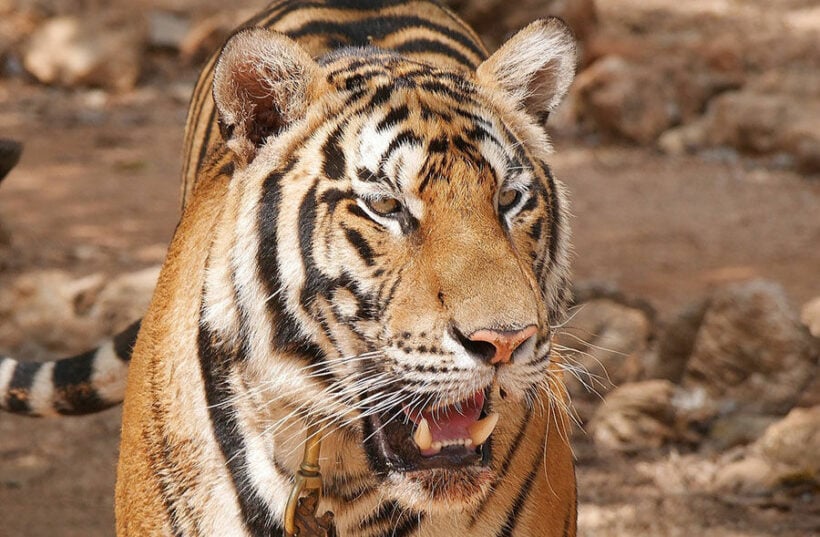Report contradicts Thai government’s claim that wild tiger numbers are increasing

A new report from the World Wildlife Fund says Thailand’s progress in doubling its wild tiger population by 2022 could be better. However, the findings are contradicted by the Department of National Parks, Wildlife and Plant Conservation, with department boss Thanya Nethithammakul saying numbers have gone up from 166 in 2020 to 177 this year and that his staff are committed to doubling the numbers by next year.
The Bangkok Post reports that Thungyai-Huai Kha Khaeng Wildlife Sanctuary, a world-heritage listed site in the west of the country is home to 89 tigers, up from 42 in 2010. In the east of the country, Dong Phayayen-Khao Yai Forest Complex is home to 22 tigers, where there were just 8 in 2010.
Officials also plan to increase wild tiger numbers in the Kaeng Krachan Forest Complex in the western province of Phetchaburi. However, according to the Wildlife Conservation Office a plan to create a series of wildlife “corridors” linking the complex to other reserves in the area has been put on the back burner due to the presence of indigenous communities living in the area.
The complex was recently given World Heritage status, despite objections from the ethnic Karen population who live in the area. Residents accuse the government of violating their human rights and the World Heritage Committee has ordered the government to better engage with the local population in efforts to preserve the area.
Kaeng Krachan park chief Ittiphon Thaikamol says the help of locals is vital to attempts to increase the wild tiger population, pointing out that tiger cubs are often seen in the complex.
“Local participation is crucial in ensuring the success of these efforts, so I would like to engage local communities, to reduce conflict, as per the World Heritage Committee’s suggestion.”
Meanwhile, the WWF report says snares are some of the biggest threats to tigers in Southeast Asia, along with habitat loss as a result of development, illegal logging, and agriculture expansion, and the illegal trade in tigers and tiger parts.
SOURCE: Bangkok Post
Latest Thailand News
Follow The Thaiger on Google News:


























